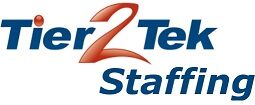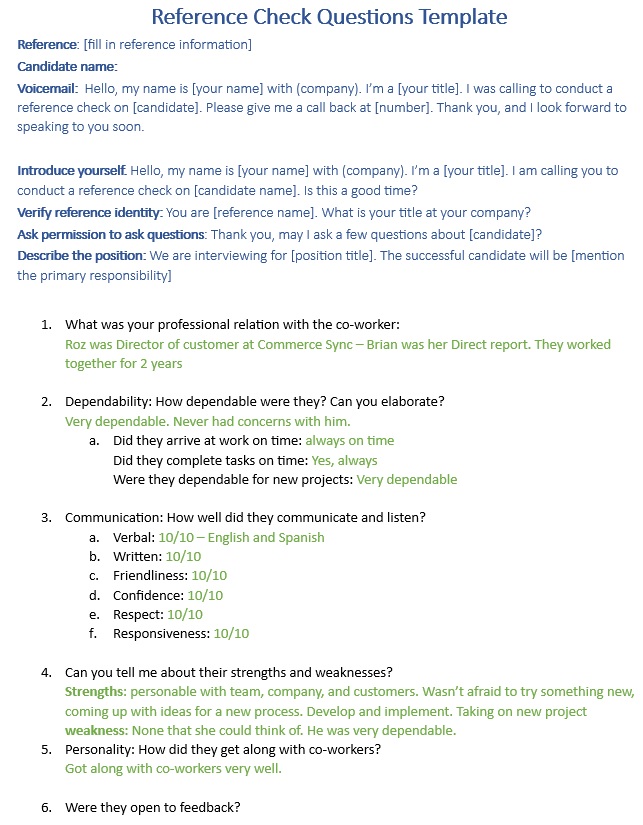Before the Call
Verify the Reference
Verify the reference by checking LinkedIn. Ensure that the reference works at the location the candidate mentioned and has the matching job title. Moreover, it’s a good opportunity to virtually familiarize oneself with the reference.
Be Ready
- Find a quiet place.
- Have all the questions ready.
- Be prepared to take detailed notes.
- Have a copy of the candidate’s resume.
- Have the reference’s LinkedIn profile open.
Beginning of the Call
Introduce Yourself
At the beginning of the call, politely introduce yourself and make sure it does not sound like a sales call. Here is an example:
Hello Pat, my name is Jane Warrner from Acme Industries. I’m an HR specialist calling you to conduct a reference check for Michael Smith. Is this a good time?
Verify their Identity
After verifying their identity on LinkedIn, ask a few questions to confirm they are the actual reference.
We don’t want to be too invasive, just a few general questions. For example, you are a few questions to ask to verify the identity:
- Can you tell me your current title and the company you work for?
- How long have you worked with the candidate?
Ask permission to ask questions
Inform them that part of the reference check will be to ask a few questions about the candidate. Ask if they are fine with answering some questions.
Verify dates of employment
Ask for the dates of employment and confirm they match with what the candidate listed on their resume or the job application.
Describe the open position
Explain to the reference what the position is. Afterwards, ask the reference if they believe the candidate would be a good fit.
Here are 10 must have reference check questions to ask references. Before the call, we recommend verifying the reference and be on guard for potential fake references.
Questions to Ask – During the Call
During the call, allow the reference to do majority of the talking. Simply, stick to the script and take detailed notes.
1. Was the candidate a subordinate or a co-worker?
- Verify the relationship.
- How long did they work together?
2. Dependability: How dependable were they? Can you elaborate?
- Did they arrive at work on time?
- Did they complete tasks on time?
- Were they dependable for new projects?
3. Communication: How well did they communicate and listen?
Allow the reference to provide feedback on their communication and listening skills. Here are a few areas of communication to ask follow-up questions if necessary.
- Verbal
- Written
- Visual
- Active Listening
- Friendliness
- Confidence
- Respect
- Responsiveness
4. Can you tell me about their strengths and weaknesses?
Take detailed notes and identify how well the candidate will fit into the organization.
5. Personality: How did they get along with co-workers?
Here are some professional personality traits to look for during the reference check.
- Accepting of others
- Positive
- Humble
- Adaptable
- Helpful
- Collaborative
- Punctual
- Open to feedback
- Hardworking
- “Can Do” Attitude
6. Were they open to feedback?
- How did they react to feedback from peers and managers?
- Did they apply the feedback?
7. How would you rate the candidate from 1 to 10?
- Here is a summary of how the reference feels about the candidate.
8. Why did the candidate leave?
- Did they leave on good terms?
- Will their reason for leaving reflect positively in your organization?
9. Would you rehire the candidate? Why or Why not
- Is the reference happy to no longer work with them?
- Or would the reference love to have the opportunity to work with them again?
10. Is there anything else you would like to tell me about the candidate?
- References can provide additional information when asked this question.
Reference Check Questions Template
Download Reference Check Questions Template
Do you need assistance with reference checks?
Tier2Tek staffing can assist your organization with talent acquisition tasks. Please visit our staffing solutions to learn more.

